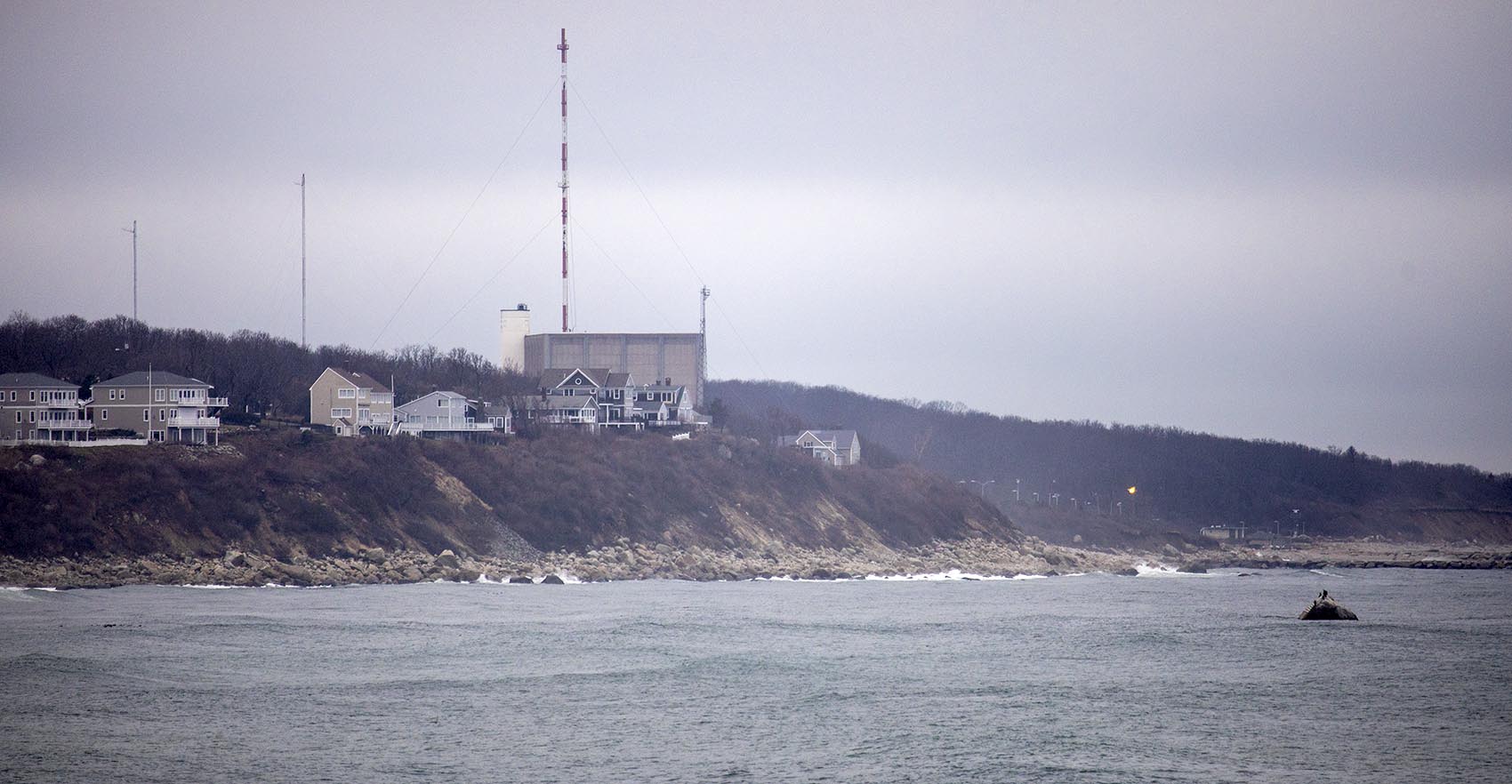To Combat Climate Change, Do We Need The Nuclear Option?

Pilgrim Nuclear Power Station, on Rocky Point, Plymouth, Mass. (Robin Lubbock/WBUR)
Future? In Massachusetts, nuclear power is history.
Last spring, Massachusetts’ last nuclear power plant — Pilgrim Nuclear Power Station — shut down after nearly 50 years. Repairing the aging plant was too expensive, and it couldn’t compete against cheap natural gas.
Nuclear opponents like Mary Lampert, founder of the citizens’ group Pilgrim Watch, say “good riddance.” She says Pilgrim — once rated the worst nuclear plant in the nation by regulators — was unsafe, unreliable and we didn’t need the power.
“We have plenty,” says Lampert. “Nuclear power has had its day. We are transitioning to a different type of electric economy.”
Lampert is right. We do have plenty of power in New England, but from a climate change perspective, it’s the wrong kind. Half of New England’s electricity comes from natural gas, a three-fold increase in just 18 years. The world’s leading scientists say we must “decarbonize” the world’s economy by mid-century to avert a global climate catastrophe. More renewable energy resources are coming online, but solar and wind are intermittent, and the transition will take time.
Read the rest of the story at WBUR’s website.
